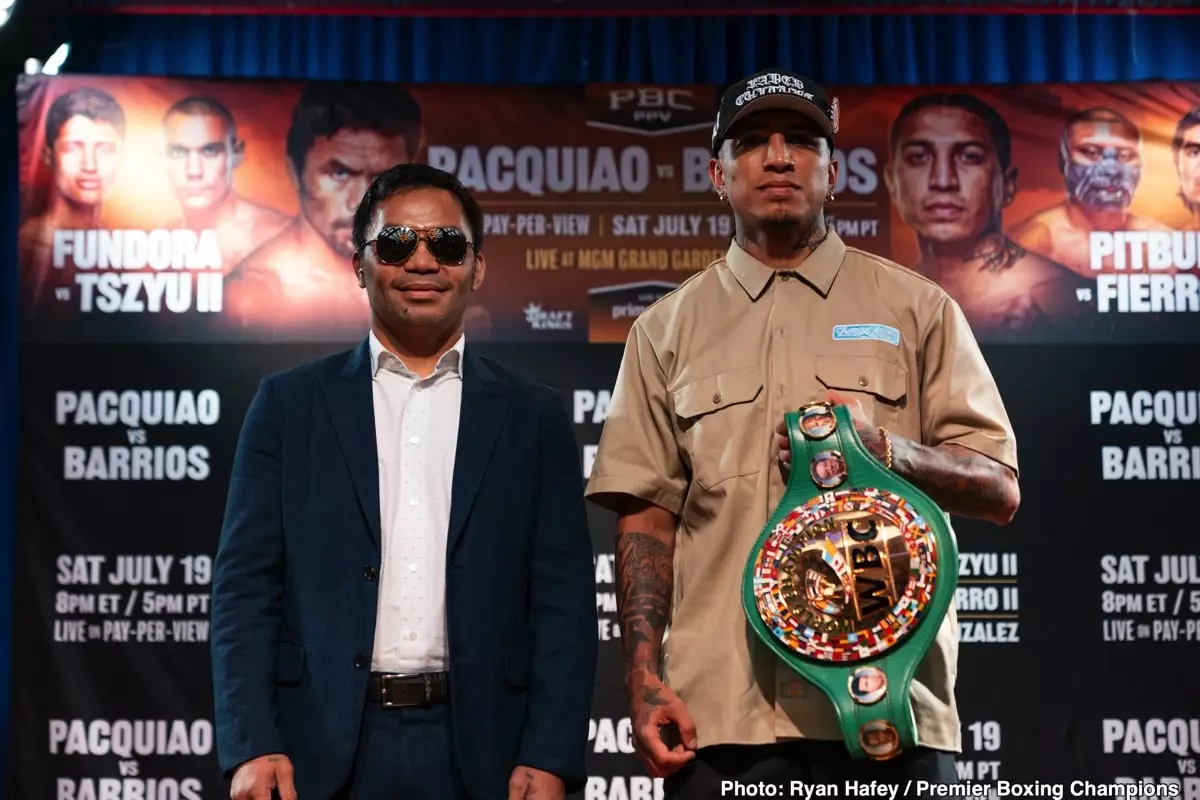The upcoming welterweight showdown between defending champion Mario Barrios and boxing icon Manny Pacquiao has ignited passionate debates among fans and experts alike. Pacquiao, known for his electrifying career that has spanned decades, is now set to make a return after a prolonged hiatus from winning a title. Yet, this comeback has elicited mixed reactions, particularly regarding the ethics and implications of such a battle at this stage of his career.
Critical Voices in the Boxing Community
One of the most vocal critics has been Jeff Mayweather, who expressed profound skepticism about Pacquiao’s return match. He described it as part of a larger “money-grab” phenomenon, insinuating that Pacquiao’s motives extend beyond a mere quest for glory. In his interview, Mayweather articulated a powerful sentiment shared by many: it seems unjust to younger athletes who have tirelessly labored to ascend the ranks only to see legends like Pacquiao receive opportunities that may not reflect their current abilities.
Such critiques are vital in evaluating the integrity of professional sports. If seasoned fighters, unmotivated by merit or performance, are given lucrative title shots, what message does that send to emerging talents? The idea that a beloved figure could overshadow younger fighters leads to questions about fairness and the sport’s future.
Pacquiao’s Legacy: Hero or Villain?
While critics paint a grim picture of Pacquiao’s intentions, it is crucial to remember the man beneath the boxing gloves. Manny Pacquiao’s resume is adorned with accolades and historic victories that place him among the sport’s pantheon. His return can be interpreted as an opportunity for the veteran to solidify his legacy further. After all, great legends, including Mayweather himself, have often returned not solely for financial gain but to defend their reputations and prove they still have what it takes.
Embeded in this complexity is an irony: the very same aspects that make Pacquiao worthy of admiration—his perseverance, skill, and ambition—can also be indistinguishable from a quest for financial security or relevance in a rapidly changing sport. Despite his critics, there’s an enduring belief that the speed and agility that have characterized Pacquiao’s fighting style might still linger, even as he approaches 46.
The Age Factor: Experience vs. Youth
The mathematical juxtaposition between Pacquiao and Barrios is striking—youth versus wisdom and experience. While Barrios has the advantage of fresher legs, the mental fortitude and strategic mastery that Pacquiao brings to the ring cannot be discarded easily. The narrative of whether he can leverage his extensive experience to outmaneuver the younger fighter has intrigued boxing enthusiasts and analysts alike.
As the countdown to July intensifies, it becomes clear that this bout goes beyond the conventional sports narrative; it prods at essential questions about legacy, fairness, and the evolution of competitive spirit. In the realm of sports, the lines between opportunism and ambition are often blurred, challenging us to evaluate what we truly seek in our champions. This impending match is not merely a fight but a pivotal moment that encapsulates what it means to engage in a sport that is steeped in legacy, while simultaneously grappling with the inevitable march of time.

